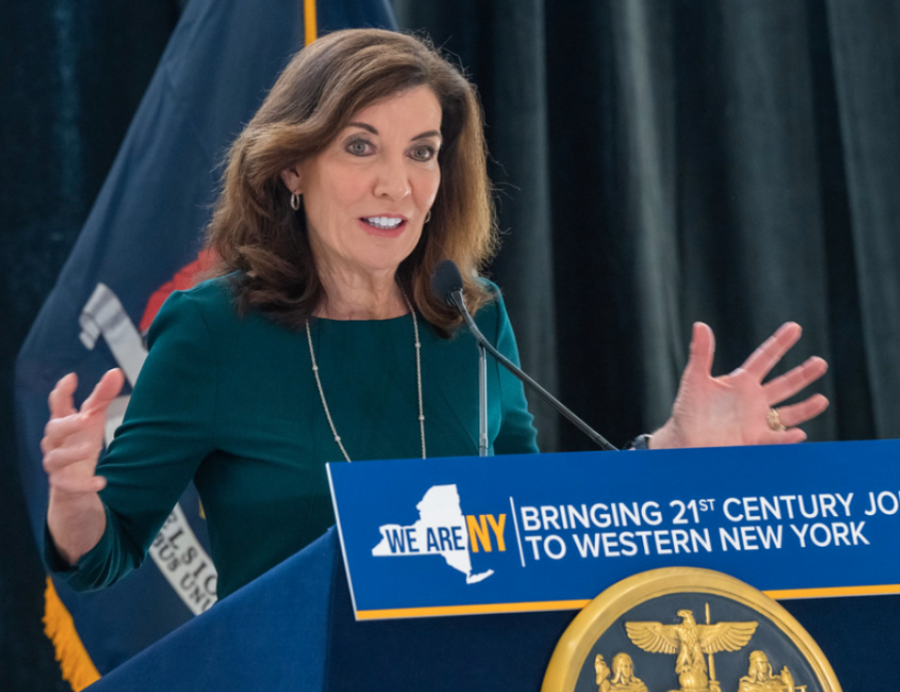Hochul’s Cash Bail Rollbacks Won’t Lower Crime Rates
Cash bail reform is one of the most contentious issues in New York. It draws criticism from the progressive left, while Republicans and some moderate Democrats are often in favor. In an attempt to take back public safety in the city, New York Governor Kathy Hochul has introduced a new plan that would destroy the city’s past efforts to improve the fairness of cash bail laws.
Cash bail is an amount of money that someone accused of a crime must post so that they can be released from custody until their trial. Its purpose is to act as leverage to ensure that the accused person complies with the court mandate they receive. Once the court officially closes the case, the defendant, or accused person, will get their posted bail back.
The progressive changes to cash bail legislation were put in place by former New York Governor Andrew Cuomo and the New York Democratic Legislature in 2019. Some elements of this reform included ruling out money bail and the detainment of non-violent defendants and those charged with misdemeanors ahead of their trials. Although he made numerous errors during his political career, this move was a step in the direction of reforming the severely-flawed criminal justice system in the U.S.
Gov. Hochul’s idea to repeal Cuomo’s cash bail reforms is part of a larger, 10-point safety plan. One of the key elements in the rollback is reinstating the “dangerousness standard,” which allows judges to place cash bail based on their assumption of whether or not a person will commit a crime while awaiting trial. According to the New York Civil Liberties Union, “[if the] dangerousness standard is applied, we know it will especially hurt Black people and other people of color.”
Gov. Hochul’s plan will also allow police to make arrests on more low-level crimes, rather than issuing desk appearance tickets. This will ultimately put more accused people behind bars before even having a trial, instead of curbing violent crime. One of the supervising attorneys at the Legal Aid Society, Marie Ndiaye, said this new legislation would be regressive, disproportionately harming the Black and brown communities in New York.
By rolling back on the efforts made by the Cuomo administration, Gov. Hochul is dropping the ball when it comes to making New York more equitable for everyone. To make matters worse, since Gov. Hochul has stated outright that she refuses to negotiate or explain her legislation more thoroughly to the public, this new plan has blindsided many New York residents.
The idea of cash bail itself is incredibly flawed and disproportionately affects those who lack necessary resources. If a person who committed a nonviolent crime can’t afford their bail, they are forced to remain in prison ahead of their trial. Since the U.S. legal system considers people innocent until proven guilty, when those who can’t make bail are forced to sit in jail before trial, they are essentially serving a sentence when they are still considered innocent in the eyes of the law.
Essentially, if two people committed the same crime but only one of them can afford the price of their bail, one will have the freedom to go home before their trial while the other sits in jail.
A famous example of the harm caused by cash bail is the case of Kalief Browder. He was a young man from the Bronx who was held at Rikers Island for three years because his family couldn’t afford the $3,000 bail price tag. Browder was accused of stealing a bag that allegedly held valuable items, but there was no incriminating evidence found. Years after Browder left Rikers, he took his own life due to trauma and paranoia.
An alternative to cash bail that would still ensure those accused of a crime show up to their trial is the supervised release program (SR). This tactic employs nonprofits to supervise defendants before their trial, and has been proven just as effective as cash bail in terms of getting people to their trials. After the program launched in 2016, “SR has helped divert over 24,000 individuals from jail.”
Removing cash bail entirely won’t solve the problem of crime, but promoting cash bail legislation is not going to curb crime either. In fact, the NYCLU found that “There is no evidence that bail reform has contributed to an increase in crime.”
Of course, someone who has been proven to have committed a crime should not go unpunished, but allowing wealthier individuals to have the opportunity to be comfortable at home before their trial is wildly unfair.
I commend Gov. Hochul’s efforts to make New York a safer place, but going backwards on cash bail reform is not the way to do it. Instead, we must look to other options that will still ensure there is justice for crime, but not in a way that punishes people for being poor.
Emma Lipkind, FCRH ’23, is a French and international political economy major and journalism minor from Holland, Penn.

Emma Lipkind is a sophomore at Fordham College at Rose Hill. She hopes to combine all of her interests by pursuing a major in international political economy...










































































































































































































